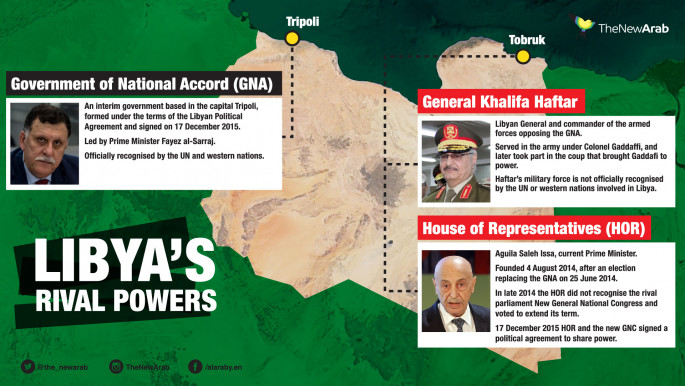Russia's man in Libya: Moscow wants to renew Gaddafi's contracts with Haftar
Moscow has plans to renew agreements with Libya that were signed under the deposed dictator, Muammar Gaddafi, Russia's chief contact in Libya said on Friday.
The Russian government has plans to return to the status quo before the Libyan revolution of 2011, Lev Dengov said in an interview with Russia's Kommersant.
"There are plans to re-sign contracts concluded under Muammar Gaddafi - these include previous agreements on the transport sector (the construction of railways), energy sector (electrification), and a number of others," Dengov said.
According to Russia Today, Russian Railways signed a €2.2 billion ($2.6bn) contract in 2008 to build a 550-kilometre rail line between Sirte and Benghazi in east Libya.
When asked what the Libyans could pay in return, Dengov replied: "Well, they also have oil."
East vs West
Dengov routinely responded in diplomatic tones when asked about Russia's position on Libya's internal politics - characterised by an ongoing series of tribal power plays.
 |
"I want to emphasize: in Libya, we do not want to be associated with either side of the conflict, we are in dialogue with everyone," he said.
In the east of the country, General Khalifa Haftar and his Libyan National Army (LNA) back a renegade government in Tobruk, while the west of the country is partly controlled by a UN-backed government under President al-Serraj.
The rest of the country is controlled by a chaotic group of tribal alliances and armed militias, many of whom are engaged in the country's lucrative people-smuggling trade.
Haftar's LNA has claimed to be fighting Islamist brigades in Benghazi and other areas of east Libya - but Dengov refutes this.
"It was not Haftar who [beat the Islamic State group in Libya]. Haftar conducted operations on a different front, in Benghazi," he said.
"It was organisations subordinate to the government in Tripoli that were fighting Islamic State in Sirte."
When asked if Haftar spoke Russian, Dengov replied: "Partly - but some of his comrades speak Russian perfectly.
"They are drawn to Russia, because they feel a nostalgia for it to a certain extent."
Arms trade and people smuggling
At one particularly illuminating part of the interview, Dengov says the Kremlin prioritises dialogue with Libya's southern tribes in order to fight the continuous flow of migrants from Sub-Saharan Africa.
"The tribes in the south of Libya play an important role, and they are ready to cooperate with Russia."
| Read more: Weapons sales: The key to Russia's Middle East agenda |
When addressing the arms embargo, Dengov said:
"If elections are held and a government is finally elected, then it is possible to raise the issue of lifting the arms embargo in the UN Security Council.
"To raise this issue is now meaningless and dangerous and will only lead to an escalation of the conflict."
He then added that some Libyans are "constantly calling" for Russia to contribute to a lifting of the arms embargo.
Russia has made a net loss in Libya due to the arms embargo, as it was one of Moscow's top weapons markets under Gaddafi.
Dengov also alleged that there were no Russian troops on the ground in Libya - something that a top US military chief has refuted.
There is also the complicated issue of Russian mercenaries in Libya, on which the Kremlin does not comment. Following Haftar's campaign to reclaim the country's 'Oil Crescent' in March, questions emerged over the use of Russian mercenaries and the origin of their orders.
Follow Rob Cusack on Twitter: @rob_cusack





 Follow the Middle East's top stories in English at The New Arab on Google News
Follow the Middle East's top stories in English at The New Arab on Google News


